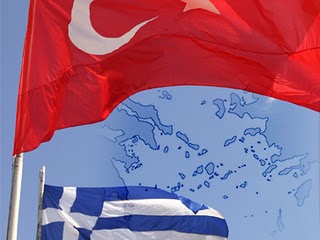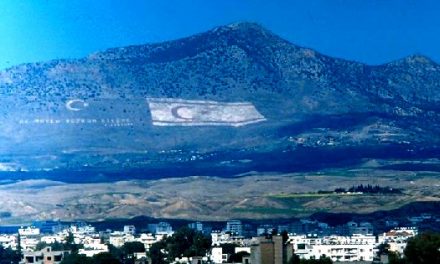By ANGELOS BERBERAKIS, Daily Sabah
Officials from the governments of Turkey and Greece, at a summit over the weekend, showed optimism regarding how refugees from Syria and other countries are to be handled in their respective countries.
The 2018 Kartepe Summit “Migration, Refugees and Humanity” was held over this weekend in the Green Park Resort on the top of Kartepe Mountain, about 100 kilometers east of Istanbul.
The summit was first held in 2017, however its institutionalization and yearly repetition has already been agreed upon during last weekend’s summit. It was attended by figures such as the Turkish interior and foreign ministers, the Greek immigration minister and a former Greek prime minister.
Interior Minister Süleyman Soylu was one of the first speakers and pointed out that despite the high numbers involved, Turkey has been able to host 3.5 to 4.5 million refugees from Syria and other countries. He said that one of the problems Turkey is currently facing is that most refugees do not wish to return to their countries, even after the war ends in Syria. In fact he said that only 270,000 had returned after the Afrin operation.
The interior minister said that Turkey has already implemented extensive programs of education and integration, targeting refugee minors specifically and that Turkey has been successful in its efforts, not the least because of its historic and religious connections to the regions affected by war and terror.
Foreign Minister Mevlüt Çavuşoğlu in his speech said that the Kartepe Summit will become a tradition due to the very difficult problems facing the world and the event’s ability to bring governments closer and cooperate better.
He said that in order to continue to do the best it can, Turkey must evaluate the successes and failures of its refugee integration policies, alluding to the fact that just as in Europe, many Turks are fearful of terror and the flooding of the job market by refugees. He said that in order to fix terror at home, one must deal with terror abroad first.
One of his conclusions was that the EU needed to do more in terms of financial reinforcement to Turkey so that Ankara may be better able to deal with the millions of displaced peoples living within its own borders.
One of the speakers was also the former Greek Prime Minister George Papandreou, a champion of Greek-Turkish relations and a very close friend of the late Ismail Cem, the former Turkish foreign minister.
When Papandreou was also a foreign minister he, together with Cem, warmed up the stone-cold diplomatic relations between Athens and Ankara in the 1990s and early 2000s by mediating in other international issues of the time, such as the war in Kosovo and regional problems in the Middle East.
“We decided to build on common interests for win-win solutions on problems like Cyprus and the Aegean islands,” said Papandreou.
He also emphasized the importance of continued cooperation between Athens and Ankara on the international stage, and added that he strongly supports Turkey’s EU prospects. He said that if Turkey and Greece, two countries with long and difficult histories, can work together to solve international issues such as the immigration crisis, then that would be a highly symbolic message to the world.
The summit was also attended by the Greek former Immigration Minister Giannis Mouzalas as well as the current Immigration Minister Dimitrios Vitsas, who had previously served as former defense minister. As Papandreou did, Vitsas also showed great sympathy for Turkey’s struggles, and said that cooperation and further support from the EU is of critical importance. These thoughts were further reiterated reinforced by guest representatives from the European Union, including Christian Berger, who was there in the place of Dimitris Avramopoulos, the European Commissioner for Migration and Home Affairs.



















